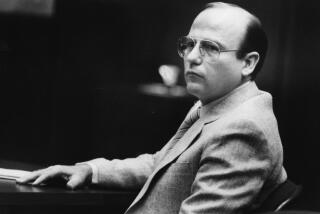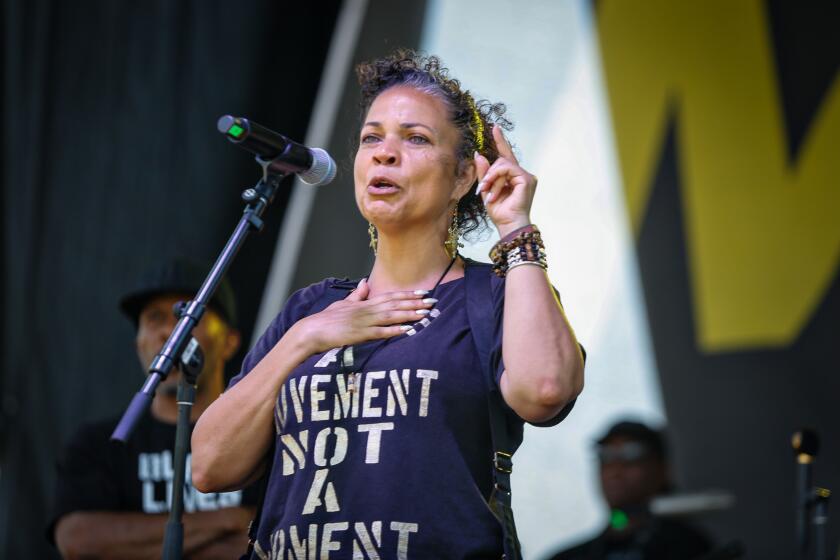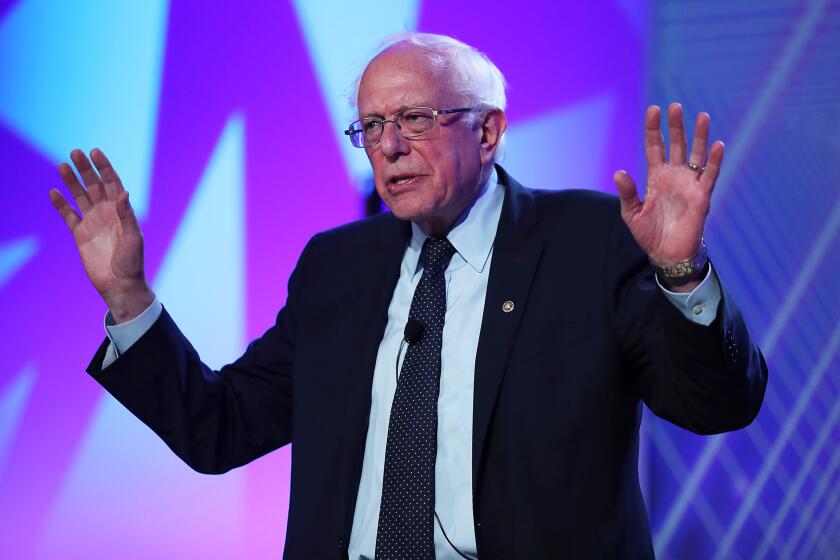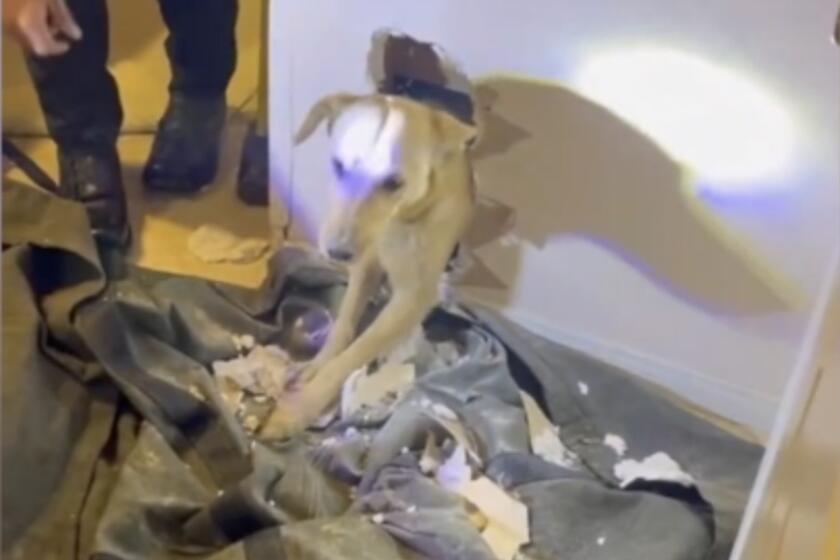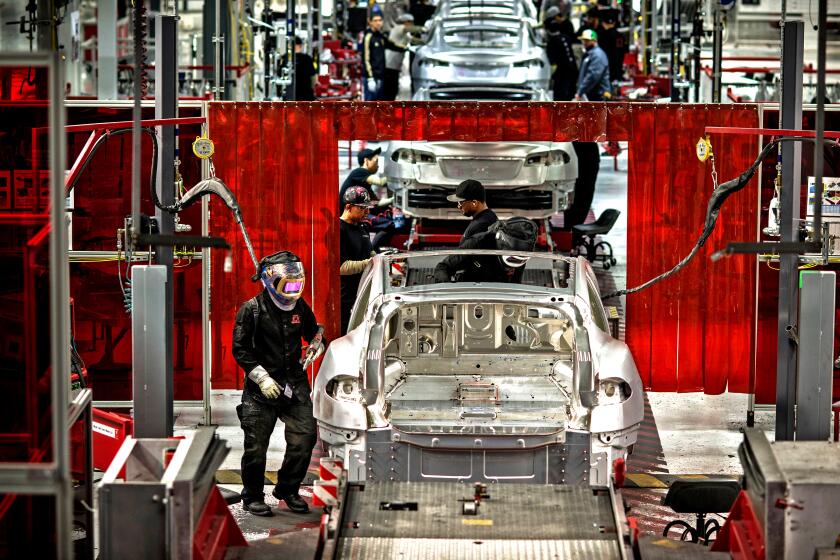Torture Arrest in O.C. Was Sparked by Victim Memoir
Seven years ago, Father Lee Huu Nguyen traced to Garden Grove a man he says tortured him and other inmates at a Vietnamese “reeducation” camp near Hanoi in the 1970s.
Nguyen asked the man to apologize, he said, but the camp “enforcer” refused. So Nguyen, a priest, decided to put his memories on paper, creating a story that would eventually lead to the man’s arrest.
For the record:
12:00 a.m. Aug. 13, 2003 For The Record
Los Angeles Times Wednesday August 13, 2003 Home Edition Main News Part A Page 2 National Desk 1 inches; 45 words Type of Material: Correction
Reeducation camp -- An article in Tuesday’s California section misspelled the name of a Vietnamese priest whose memoir about 13 years in a Communist reeducation camp led to the apprehension of a former camp guard. His name is Le Huu Nguyen, not Lee Huu Nguyen.
The memoir chronicled his 13 years in the Communist camp, as well as the violence allegedly committed by Thi Dinh Bui, 61.
On Friday, Bui was arrested and accused by federal authorities of brutalizing prisoners at the Hanoi camp. He faces a deportation hearing next week, though federal officials have not filed any charges against him because the alleged crimes were committed overseas.
Activists credit Nguyen’s writings, some of which were widely read on the Internet, for generating interest in the camp. The activists then pressed federal authorities to investigate.
Bui’s arrest has opened old wounds in Vietnamese communities across the country, with families again talking about the Communist government they say inflicted such pain on them.
The raw feelings are heightened in Orange County, because Bui settled there along with thousands of other Vietnamese refugees.
Bui, in federal custody in San Pedro, could not be reached for comment. Federal investigators said Bui, a onetime South Vietnamese army captain who was a trusty at the camp, has told them he had only been following orders.
The camp, Thanh Cam, was one of hundreds the Communist government created to indoctrinate the defeated South Vietnamese after their long civil war.
Mai Truc Thi Trinh, 50, of Chantilly, Va., said her father told her he had been beaten several times by Bui at Thanh Cam, from 1975 to 1988. Her father, Tieu Trinh, had been a colonel for the South Vietnamese military.
She said her father was among five prisoners who escaped the camp in 1979, only to be caught and brought back, and allegedly chained and beaten by Bui.
The beatings were so severe that one of the men, Tiep Van Dang, died and another, Van Thanh Lam, was left to starve to death, Mai Trinh and others say.
Her father was released in 1988, immigrated to Virginia in 1991 and died in 1995 of cancer.
“I cannot forgive Bui,” Mai Trinh said. “He has to face what he has done to my father and other prisoners.”
Like other survivors and relatives of those who served in the Hanoi camp, Mai Trinh said she wished Bui had been apprehended sooner, perhaps when her father was still alive.
“But it’s better late than never,” she said. “My father would be very happy.”
Trinh, among others, lauds Father Nguyen for his dedication in writing about the camp and building public interest in it.
Nguyen, who lives in New Zealand, said he expects to testify at Bui’s immigration hearing next week.
Nguyen said he was beaten and stomped by Bui three times. Sometimes he was beaten and then passed to another guard “like a soccer game.”
“I was ready to die,” Nguyen said, “but I told myself I cannot die so unreasonable like this.” He said he was beaten so hard that his back and neck continue to hurt, requiring several operations.
“It’s very painful to remember,” he said. “I don’t want to be reminded.”
Nguyen’s 684-page book, titled “Toi Phai Song” (“I Must Live On”), will be published next month, he said, and the English version will be out next year.
“I want to tell the naked, painful truth about what happened,” said Nguyen, who has traveled worldwide to promote human rights.
He said he visited Bui’s Garden Grove home in 1996 to offer forgiveness and seek an apology. He said Bui refused to accept any responsibility.
“How could I forget him?” Nguyen said. “The person who beat you until you bleed, how could I forget his face? He abused me beyond anything you can imagine. I forgave him, but I will never forget.”
More to Read
Start your day right
Sign up for Essential California for news, features and recommendations from the L.A. Times and beyond in your inbox six days a week.
You may occasionally receive promotional content from the Los Angeles Times.

